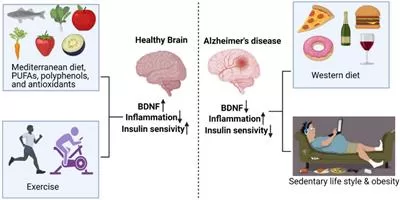With finals week looming, students face a critical decision: pull an all-nighter or get some rest. Two groundbreaking studies from the University of Michigan have uncovered compelling reasons to choose sleep, revealing its crucial role in memory formation and learning.
The Importance of Sleep for Memory
Memory formation hinges on the reactivation and replay of specific neurons in the hippocampus, a seahorse-shaped brain structure essential for memory. According to research led by Dr. Kamran Diba and his former graduate student Dr. Kourosh Maboudi, neurons in the hippocampus are activated by specific stimuli during wakefulness and then reactivate during sleep to consolidate memories. Their findings, published in Nature, demonstrate that sleep is essential for this process.
“Imagine you’re navigating a maze,” explains Dr. Diba. “Certain neurons, known as place neurons, light up when you reach specific spots. During sleep, these neurons reactivate, replaying your experience to consolidate the memory.”
Sharp-Wave Ripples and Memory Consolidation
Central to this process are sharp-wave ripples, bursts of electrical activity that emanate from the hippocampus every few seconds during restful states and sleep. These ripples synchronize neuronal activity, allowing the brain to update and solidify memories.
The researchers measured brain activity in rats after they completed a new maze and discovered that during sleep, neurons corresponding to specific maze locations reactivated together, reinforcing the memory of the maze.
“Using Bayesian learning, we could track which neurons responded to specific maze locations,” Dr. Diba explains. “This allowed us to visualize the plasticity of neuronal patterns in real time, supporting the theory that sleep reactivation is vital for memory consolidation.”
The Impact of Sleep Deprivation
The second study, also published in Nature and led by Dr. Diba and former graduate student Dr. Bapun Giri, explored the effects of sleep deprivation on memory. The team compared the reactivation of neurons during sleep and sleep deprivation, revealing significant differences.
While sharp-wave ripples occurred at similar or higher rates during sleep deprivation, their amplitude and power were lower. Crucially, the reactivation of maze-related neurons was significantly suppressed during sleep deprivation. Even after catching up on sleep, the reactivation and replay of memories never fully recovered.
“In almost half of the cases, reactivation was completely suppressed during sleep deprivation,” Dr. Diba notes. “This demonstrates the detrimental effects of sleep deprivation on memory.”
Looking Forward
Dr. Diba’s team plans to continue investigating the nature of memory processing during sleep and the impact of sleep pressure on memory. Their research underscores the importance of adequate sleep for memory consolidation and highlights the long-lasting effects of sleep deprivation on learning.
References:
- Maboudi, K., Giri, B., Miyawaki, H., Kemere, C., & Diba, K. (2024). Retuning of hippocampal representations during sleep. Nature. DOI: 10.1038/s41586-024-07397-x
- Giri, B., Kinsky, N., Kaya, U., Maboudi, K., Abel, T., & Diba, K. (2024). Sleep loss diminishes hippocampal reactivation and replay. Nature. DOI: 10.1038/s41586-024-07538-2
The research was funded by the National Institute of Mental Health and the National Institute of Neurological Disorders and Stroke. Additional authors include Hiroyuki Miyawaki, Caleb Kemere, Nathaniel Kinsky, Utku Kaya, and Ted Abel.











